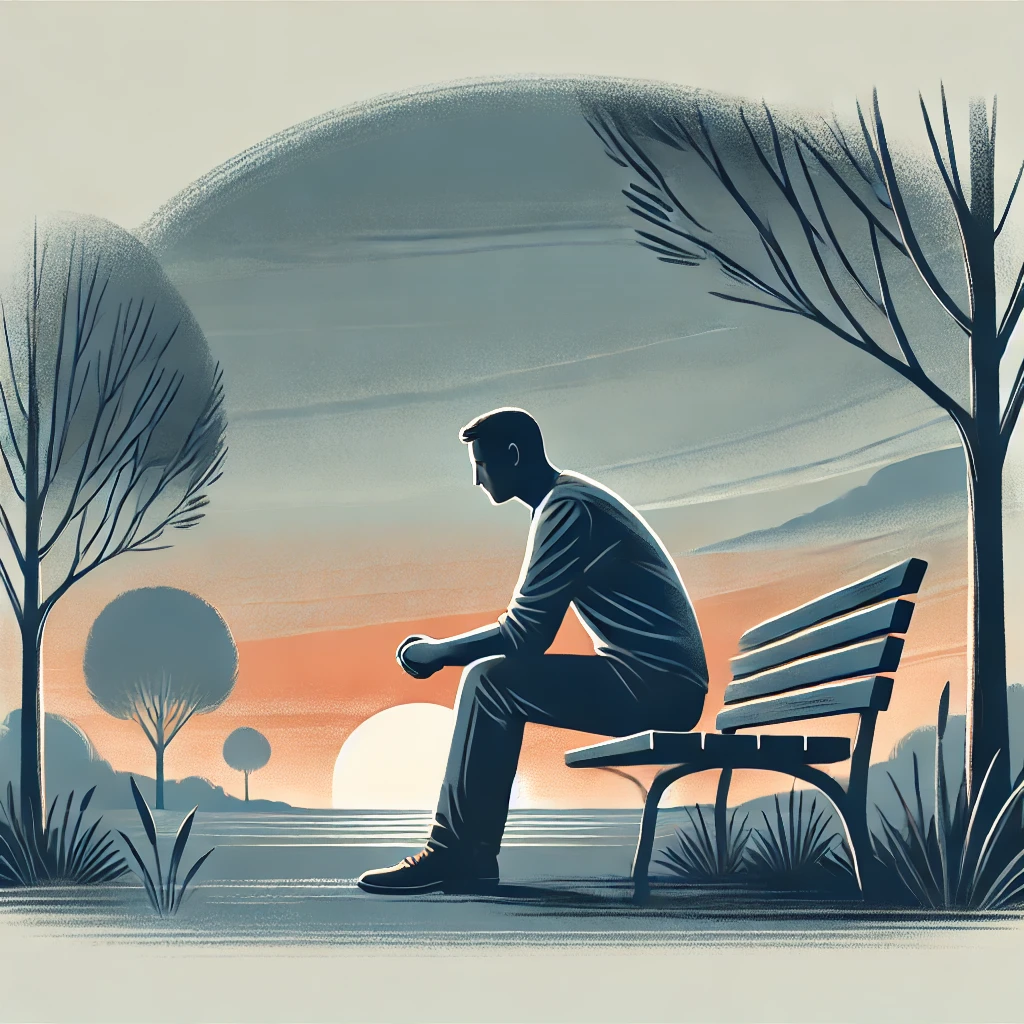Hey guys,
Let’s talk about something that doesn’t get much airtime but should: mental health—specifically, depression. I know, it’s not the kind of thing we usually bring up over beers or during a pick-up hockey game, but maybe it’s time we did.
A significant number of men, particularly those between 30 and 40 years old, are grappling with depression. The stark reality is reflected in the alarming statistics: men in Canada are four times more likely to die by suicide than women, and depression frequently plays a central role. This crisis isn’t a result of inherent weakness or fragility in men. Instead, it stems from deeply ingrained societal norms that dictate men must suppress their emotions, endure hardship silently, and relentlessly strive forward, regardless of the toll it takes on their mental health
The Invisible Weight
Depression doesn’t always look like the clichés we see in movies. It’s not just about crying or feeling sad. For many of us, it’s more like carrying a weight you can’t see—a heavy, constant exhaustion that drags you down even on the good days.
Maybe you’ve been feeling irritable for no reason, snapping at your partner or kids, or feeling disconnected from the things that used to make you happy. Maybe you can’t sleep, or you sleep too much. Maybe you’re stuck in a loop of “what’s the point?” thoughts, but you keep it to yourself because, well, that’s what we’re used to doing.
Does any of this sound familiar? If so, you’re not alone, and more importantly, there’s nothing wrong with you.

Why It’s So Hard to Talk About
Let’s be real—opening up about mental health feels unnatural for a lot of us. From the time we were kids, we were taught to be the strong ones, the fixers, the providers. Admitting that you’re struggling can feel like admitting failure, even though it’s anything but.
The truth is, talking about what’s going on in your head is one of the strongest, most courageous things you can do. It doesn’t make you less of a man; it makes you a smart one.
What Can You Do?
So, where do you start? Here are a few ideas:
1. Talk to Someone You Trust
You don’t have to unload everything all at once. Start small. Talk to a friend, your partner, or a family member. Just saying, “Hey, I’ve been feeling off lately” can open the door to a deeper conversation.
2. Reach Out to a Professional
A lot of guys hesitate to see a therapist because it feels awkward or intimidating. But therapy is just a conversation—a judgment-free zone where you can talk openly and get practical tools to manage what you’re feeling. There are tons of online resources in Canada, like BetterHelp or MindBeacon, which make it easy to connect with someone from the comfort of your own home.
3. Get Moving
Physical activity isn’t a magic cure, but it helps. Even something as simple as a 20-minute walk can boost your mood. Bonus points if you get outside, where fresh air and sunlight can make a big difference.
4. Cut Yourself Some Slack
If you’re dealing with depression, the last thing you need is to beat yourself up about it. You’re not lazy or failing—your brain is dealing with something tough. Treat yourself with the same kindness you’d show a friend going through a hard time.
5. Consider some aromatic solutions
Aromatherapy is a great way to support your mental health journey, including dealing with depression. There are a number of aromatic oils that can help to improve your overall mood. Some of these oils include Bergamot, Palo Santo, Rosewood, & Ylang Ylang, to name a few. In order to ensure that there are not drug interactions its always a good idea to consult with a trained Registered Aromatherapist.
There are two primary ways to use the oils. The first and simplest form would be through the use of an aromatherapy inhaler. It’s inexpensive, convenient, portable, and effective. The second is to experience the ultimate stress relief with an aromatherapy massage designed for the modern man. This powerful session combines a tension-melting massage with the application of aromatic oils, covering 80-90% of your body to boost your mood, reduce stress, and combat feelings of fatigue or depression—all while benefiting from the grounding power of human connection.
You’re Not Alone
Here’s the bottom line: You don’t have to go through this alone. Whether it’s talking to a buddy, joining a support group, or connecting with a professional, there are people out there who get it and want to help.
Life has its ups and downs, but depression doesn’t have to define you. The first step is the hardest, but it’s also the most important. You’ve got this.
Take care of yourself—you’re worth it.
— A fellow guy who gets it
